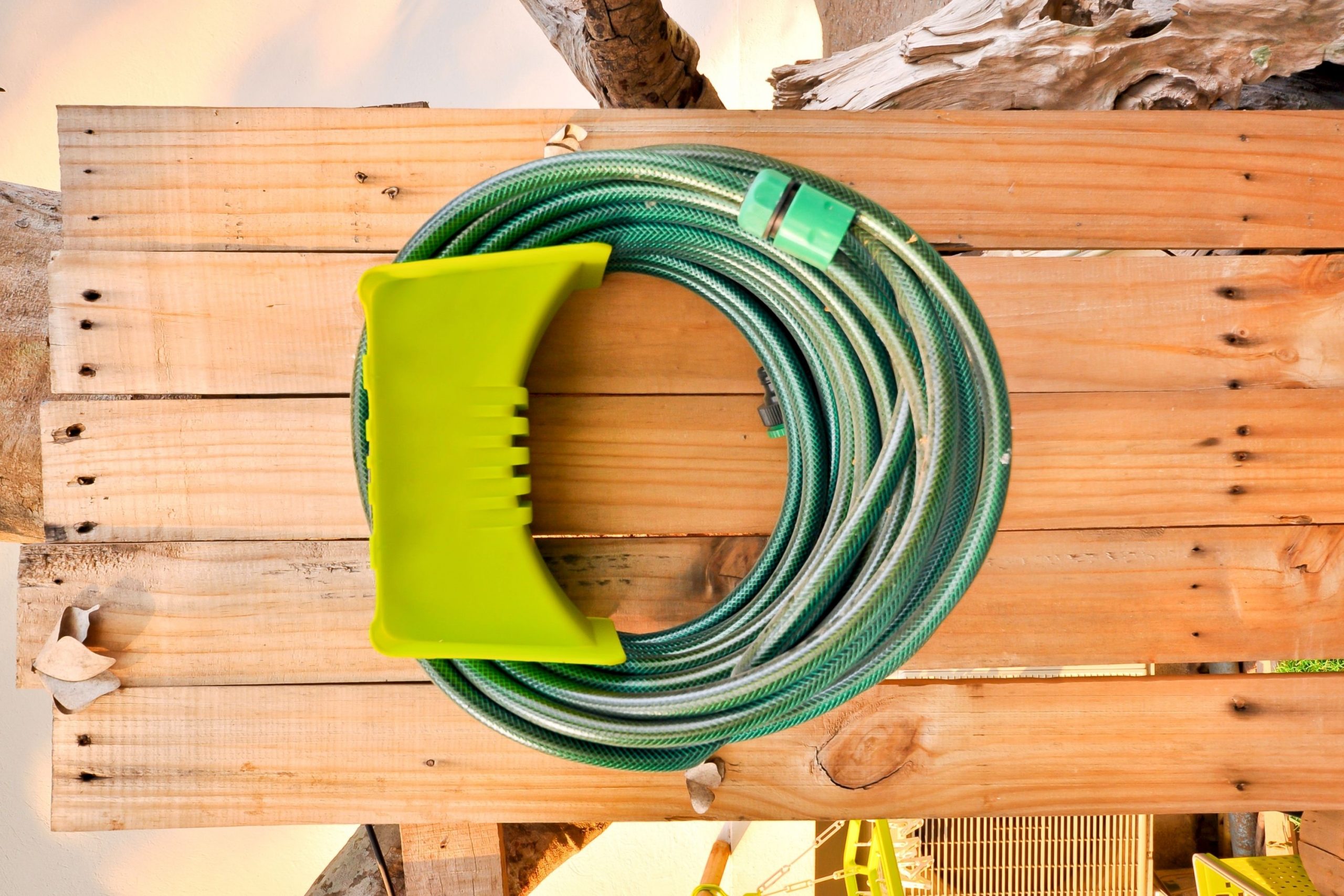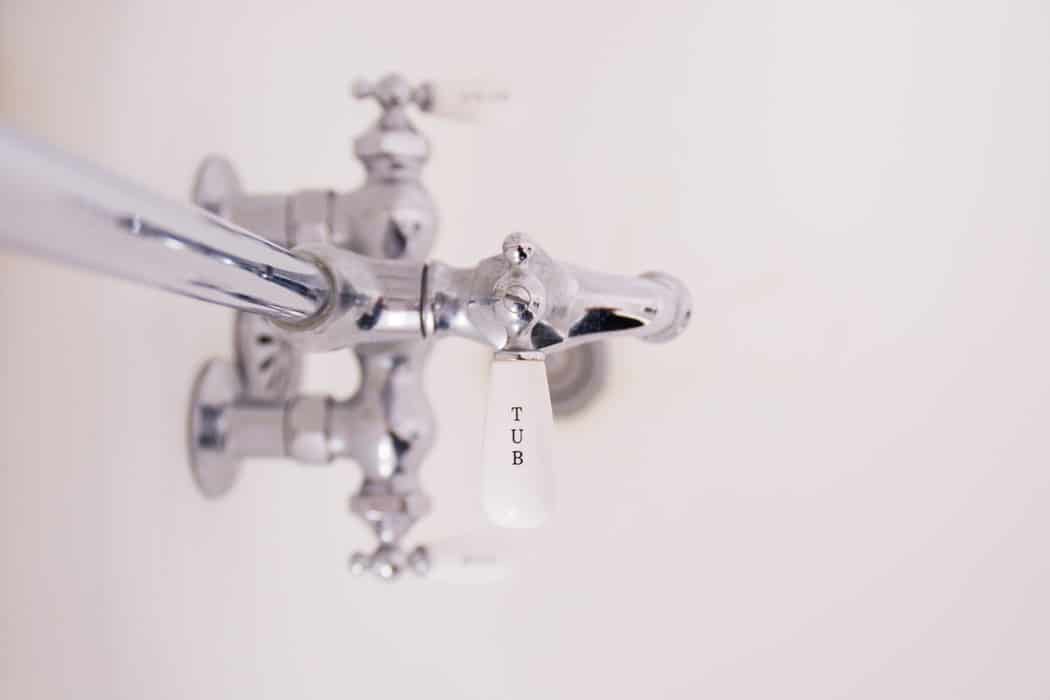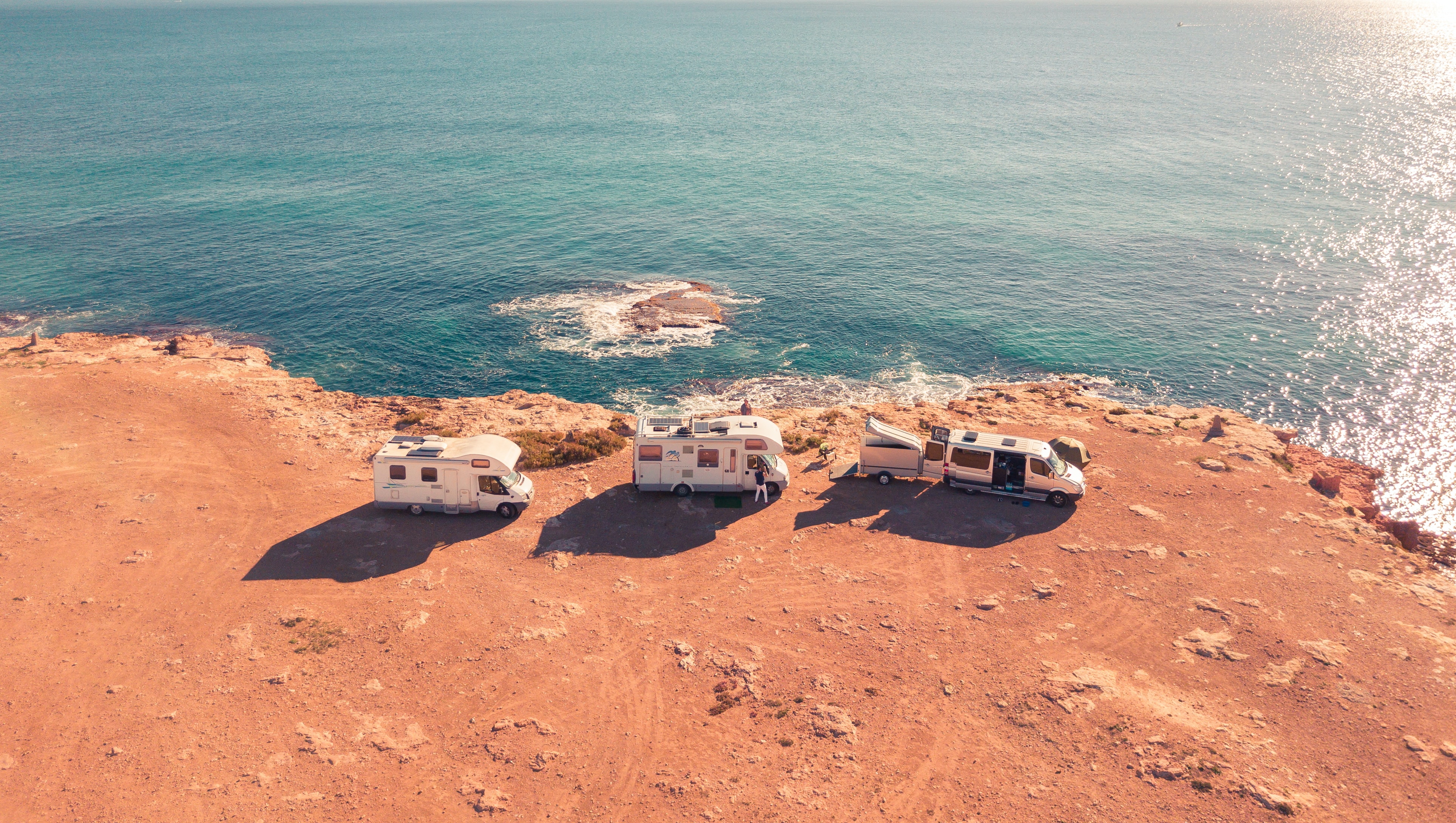The majority of the RV water hoses are not designed for withstanding low temperatures and cold. This is why, if you live in an area with really harsh winters, you most likely tend to face the same issue: your RV water hose freezes when you connect it to the water supply.
So if you are planning to stay or you already live in an area that is extremely cold, you should think of insulating your water lines and valves. This way you will manage to keep them from freezing and damage.
But if your RV water hose is already frozen, there is no need to worry (no matter how weird it may sound to you!). You can still thaw it easily with just a few simple steps.
So today you will learn how to keep rv fresh water hose from freezing using several different techniques. And also, we will tell you how cold it must be to make your RV water hose freeze.
As long as you take the preventive measure we are going to provide you with, you will be able to camp and stay in any sort of climate!
How to Keep Your RV Water Hose From Freezing?
You can protect your RV water hose and the whole system from freezing by using one of the three most common methods. First, you can wrap your hose to keep it warm. Second, you can try to insulate your water valves. And third, your RV water hose can be thawed, but that’s only if it has already frozen.
See, when you buy an RV, you also have to purchase and familiarize yourself with quite a lot of additional equipment. And one of those pieces of equipment is your RV water hose. If you have never had an opportunity to learn more about it, let us explain it to you in detail.
The RV water hose is the type of hose that usually runs from a campground water spigot to your RV.
It looks just like your regular garden water hose, so you should be able to identify it easily.
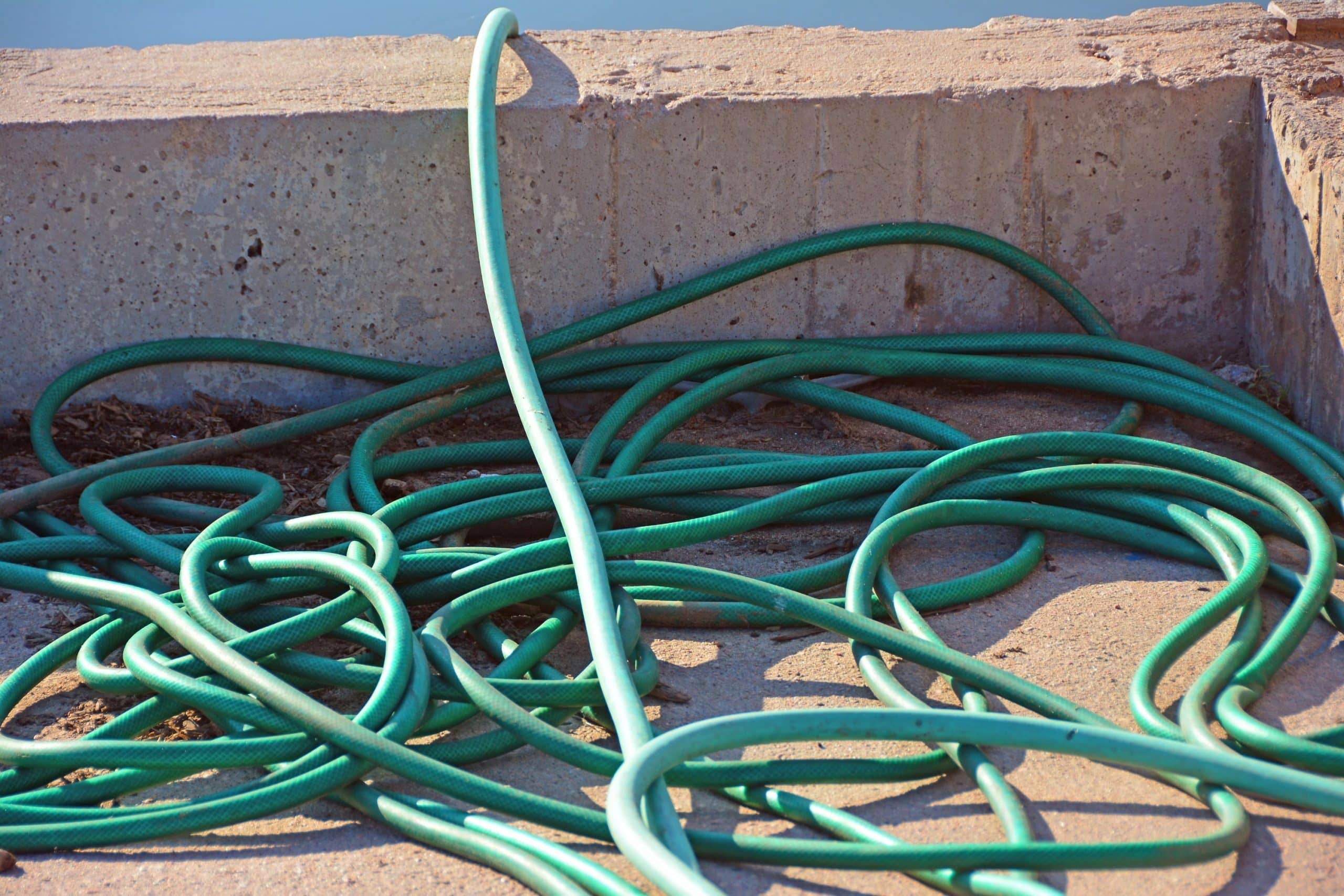
And once you find the RV water hose, your first and foremost obligation is to learn what you can do to protect it from freezing when cold arrives. See, when you are traveling in your RV, especially if you are doing this any time of the year, it may happen that nights become colder.
And if you are fond of traveling in fall or winter, this can become a huge point of concern for you!
This is why, in order to avoid any serious issues with your RV water hose and water lines, we recommend you familiarize yourself with a few handy methods on how to protect your water hose from getting completely frozen.
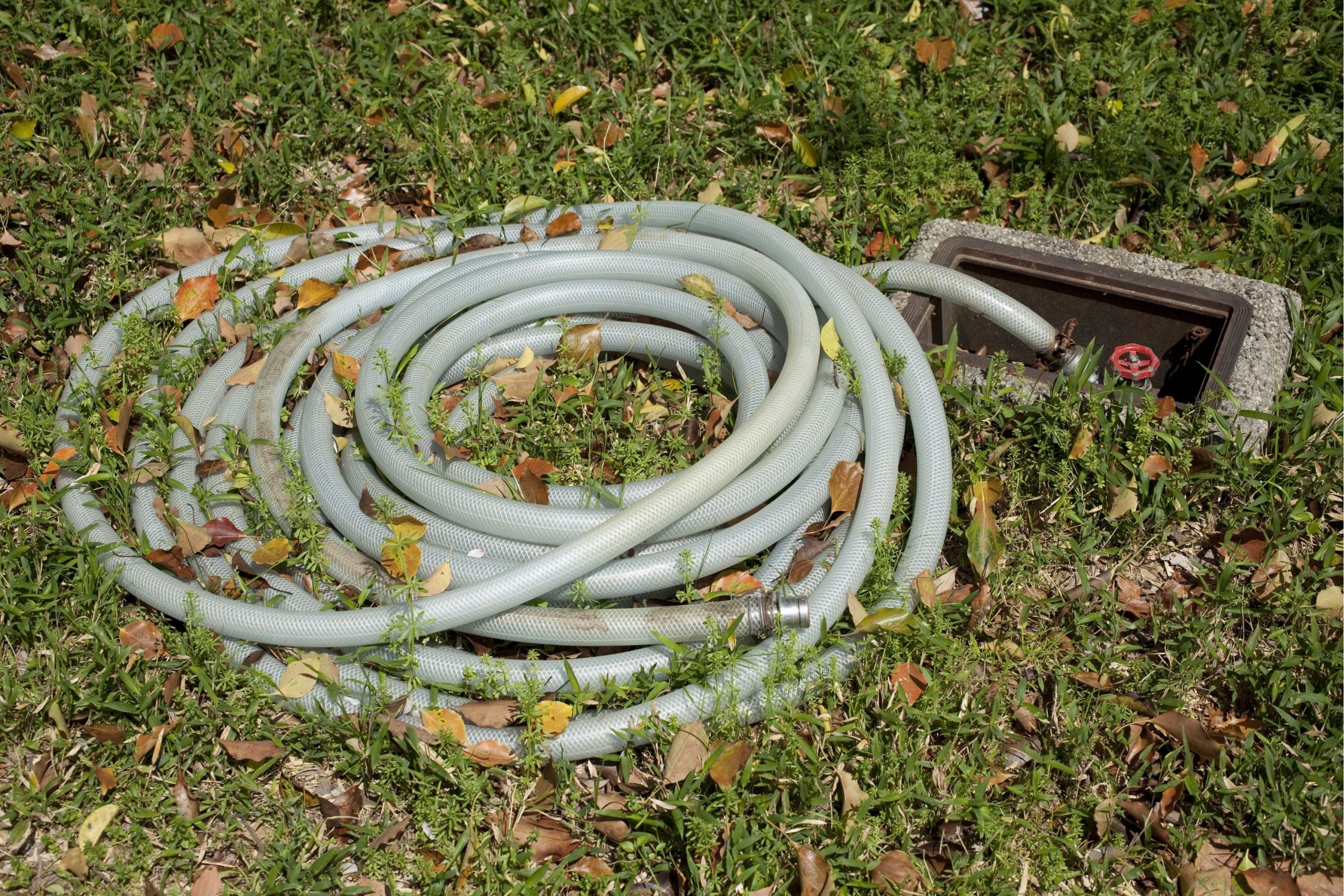
How to Keep an RV Water Hose From Freezing By Wrapping It
So, wrapping the hose is the first thing you can do to protect it from cold and freezing. To do this correctly, start with measuring the length of your hose so that you know for sure how much insulation you will need.
Once you get the insulation, lay out your water hose on a flat surface and do your best to make it as straight as possible. There must be no curves or twists along with the hose! Use a tape measure to find the length of your RV water hose from one end to the other. In case you are using a new RV water hose, you can check its package since the length of the hose must be indicated there.
Now that you know the length of the hose, tape your heat cable every thirty centimeters along the hose. Heat cable detects the temperature of the hose and heats it up in case it gets way too cold.
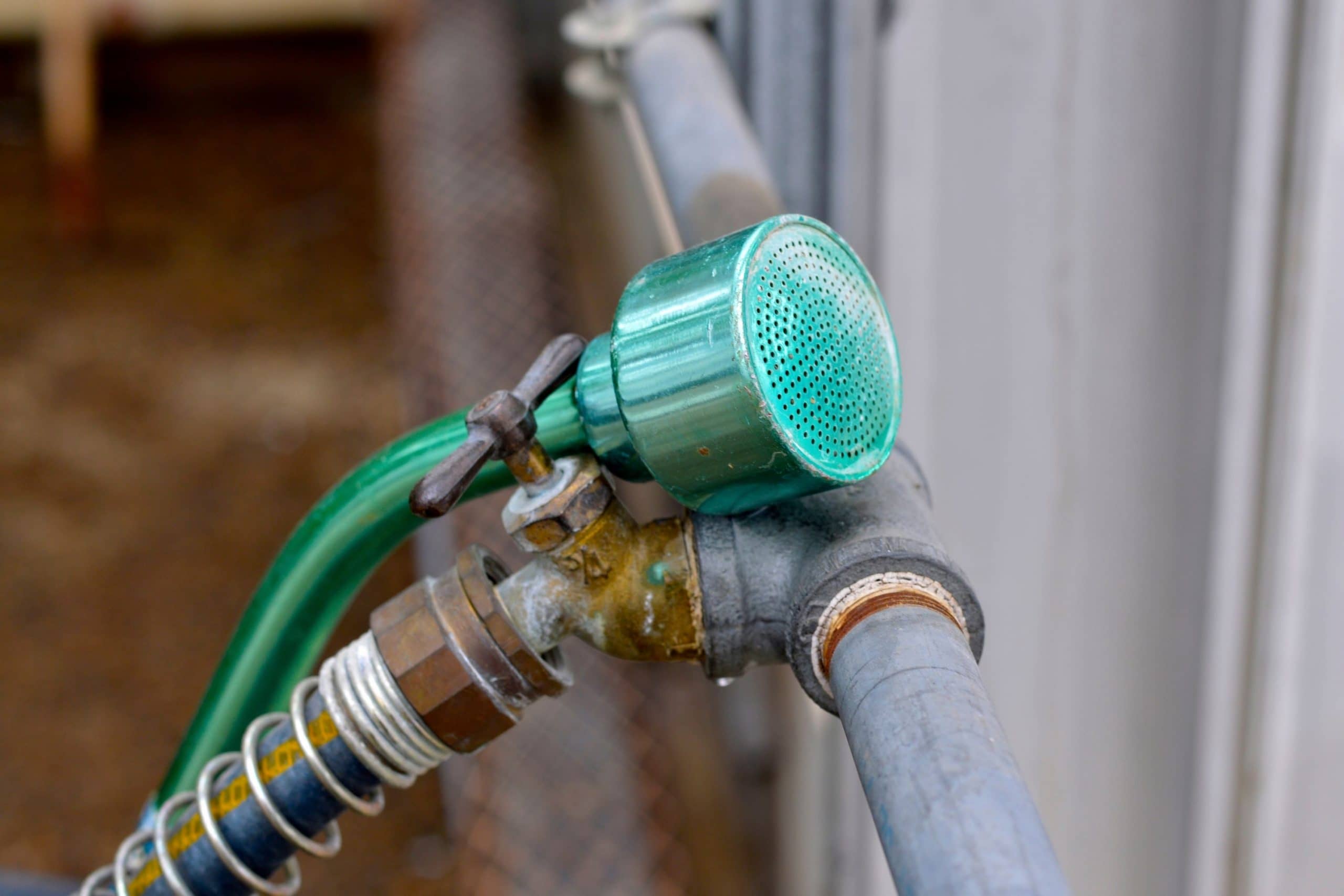
We recommend you get a heat cable that matches the length of your water hose and secure the sensor with the electrical tape making it pressed against the hose.
Simply run the cable parallel with the water hose and wrap electrical tape around it every thirty centimeters to make it stay in place.
The next step is to cover the water hose and the cable attached to it with foam insulation tubes. Again, those foam tubes must match the length of the water hose.
What you need to do is to pull the side of this insulation foam tube apart and put the hose inside of it. Then press the opening in the side of the tube together so that the water hose is not exposed, and apply duct tape every 0.30-0.61 meter to hold it in place.
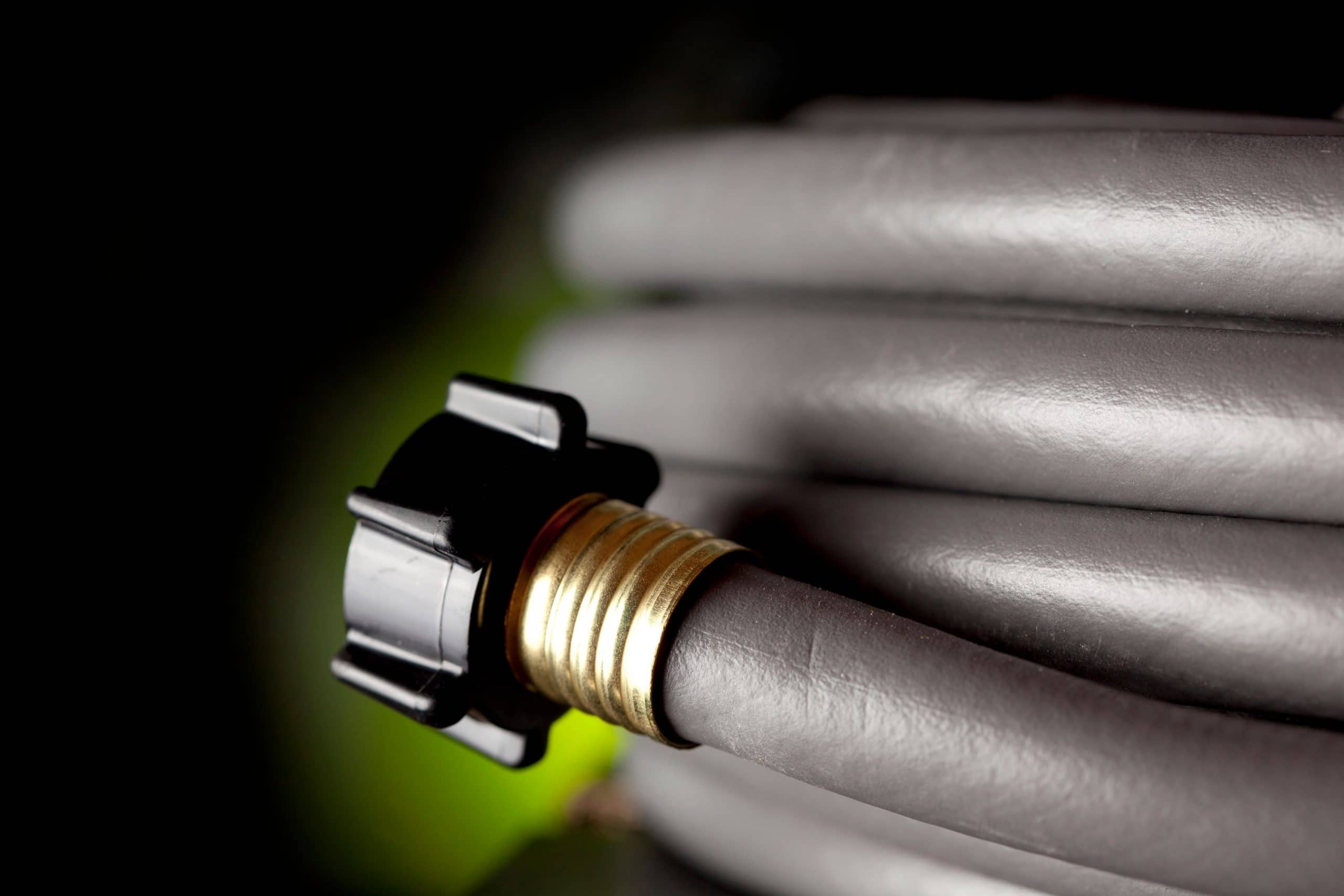
Now, wrap the outside of the foam with pipe insulation tape. Start wrapping near the end of the water hose overlapping the tape by about half an inch with each coil. Continue wrapping the foam tube with the tape until you get to the other end of the hose.
Finally, plug the heat cable into the power supply to keep the hose warm. See, heat cable needs a power source so that it is able to work. So what you can do is to either run the plug to the campsite’s power supply or to the outlet on your RV.
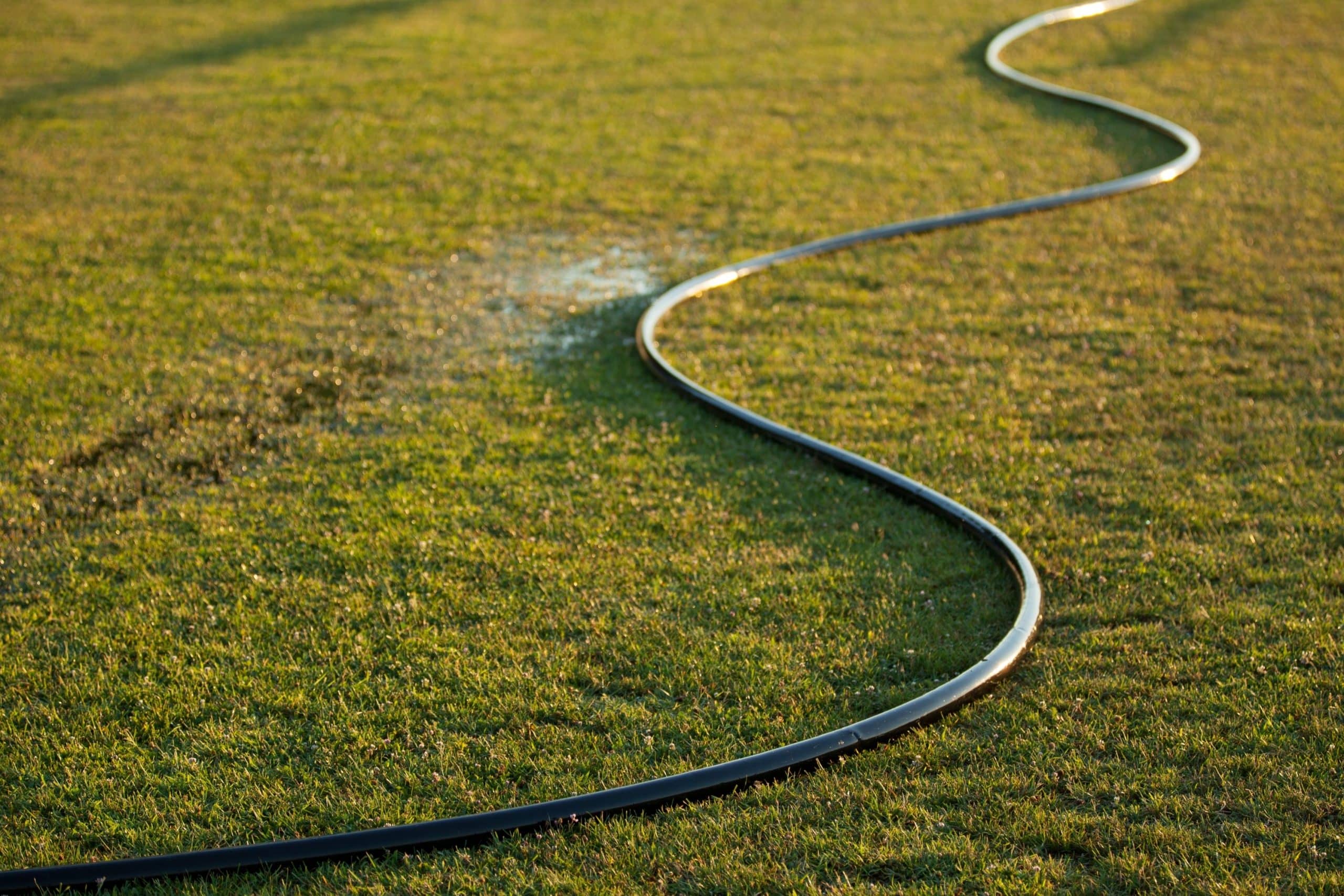
Once the heat cable is plugged in, it will detect low temperatures and turn on each time it is too cold for the water hose.
And of course, remember to connect the hose to the water supply and your RV’s pump! Attach the end of the hose to the port on the side of your RV that leads to the water tanks. Then connect the other end of the pipe to the water supply pump on your campsite. Open the valves by turning them clockwise so that fresh water can run into your RV.
How to Keep RV Water Hose From Freezing By Insulating Your Water Valves?
Another method of protecting your RV water hose from freezing is a water hose insulation. First of all, to have a properly insulated RV water hose, you need to put a skirt around the base of your RV to protect the water lines from freezing and any other exterior exposures.
Also, make use of insulating foam boards around the perimeter of your RV so it does not get cold underneath.
Also, it will be useful if you always keep a heat lamp in the water compartment to melt any ice. Since the water valves are located in an exterior compartment of an RV, they can still freeze even if you run your RV. So if you plug in a small space heater or a heat lamp, it will keep the compartment warm.
Another thing you need to keep in mind is that empty water tanks are more likely to freeze and thus plug your valves and hose with ice. So you should close the valves on your water tanks so that the liquid remains inside. And when your tanks are full, dump them so that they are only a quarter of the way full. This way, they will not freeze when cold arrives.
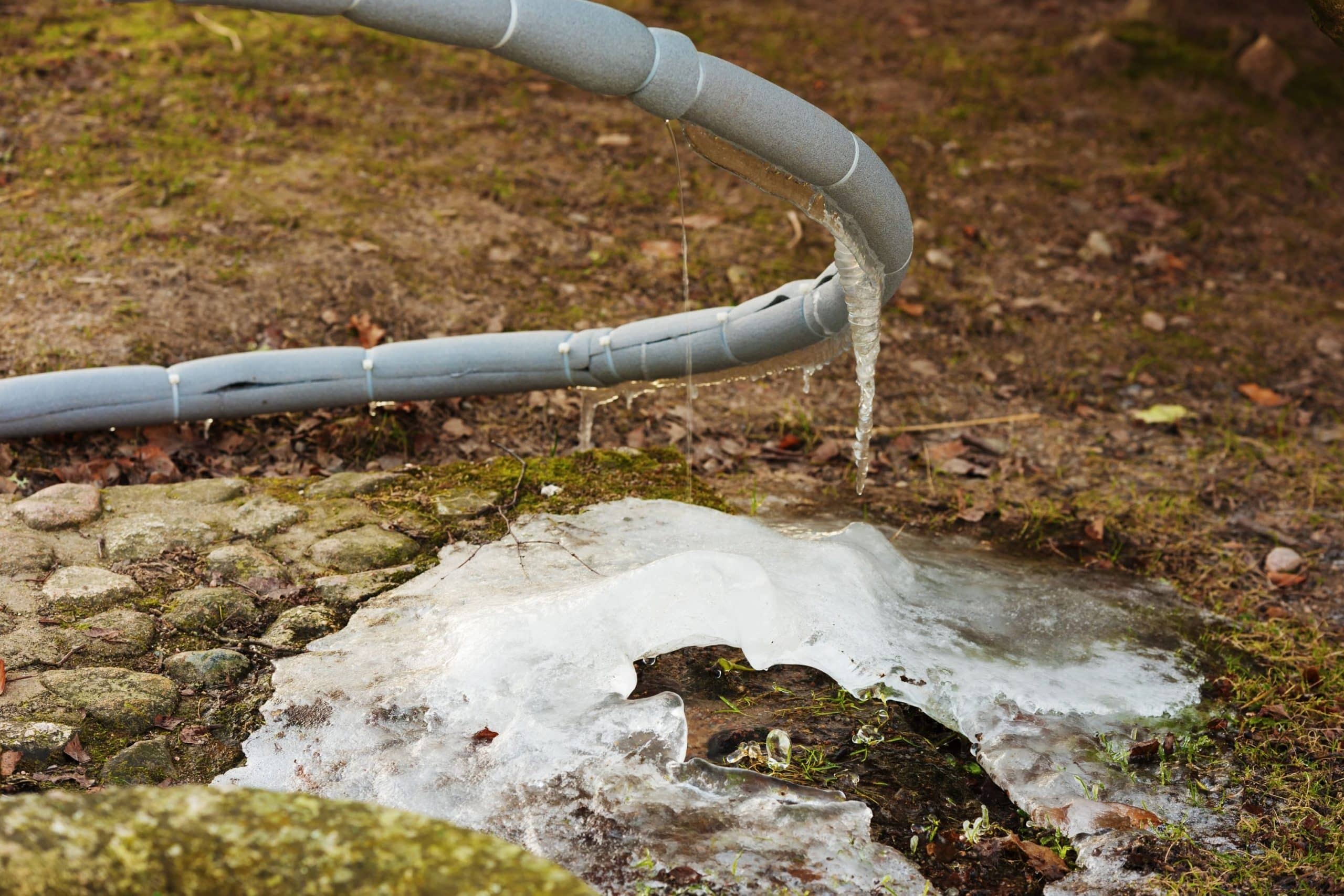
Thaw Your Frozen Hoses
What if your water hose has already frozen? No worries, this can be still fixed quite easily even though you will have to spend some time and certain effort to achieve success.
You will need a heat gun to use it on the hose connections. Point the heat gun at the end of the hose that connects to the RV and keep it heated for five to ten minutes.
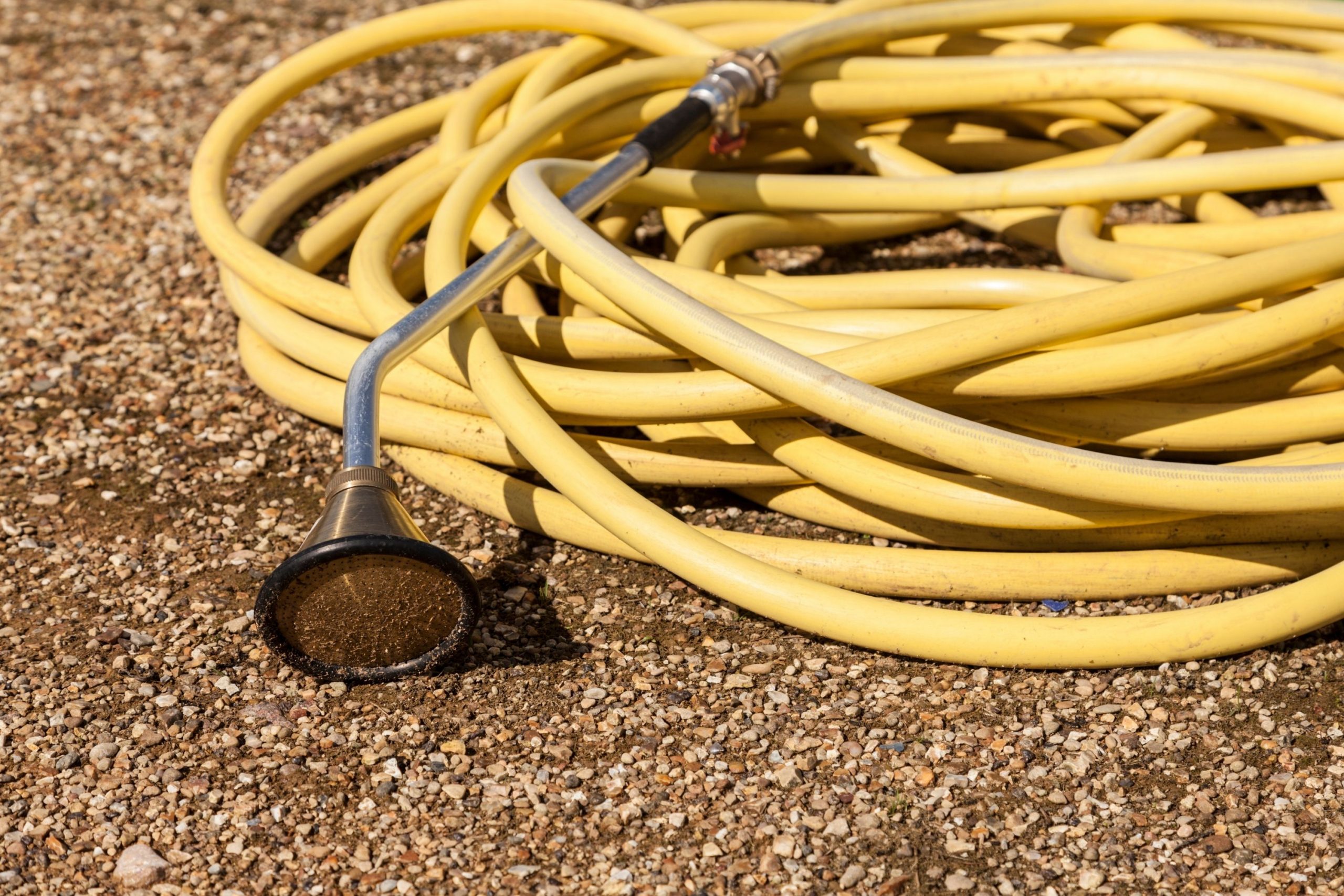
Move the nozzle of the heat gun all around the hose to make ice melt faster. Once the end of the hose is melted, do the same with another one.
Then, when the hose connections and the hose itself are melted, disconnect it from the RV by unscrewing it from the ports, and keep it indoors for a while to keep it warm. You should keep it in your RV’s shower with the points of the hose turned up and let all the water run out of it.
Finally, before you reattach the hose back to the RV, check it for any damages, such as stretches or bursts, cracks, splits, etc.
With these easy recommendations, you will be able to take care of your RV water hose and keep it warm and properly protected during the winter days so that it won’t feeze completely.
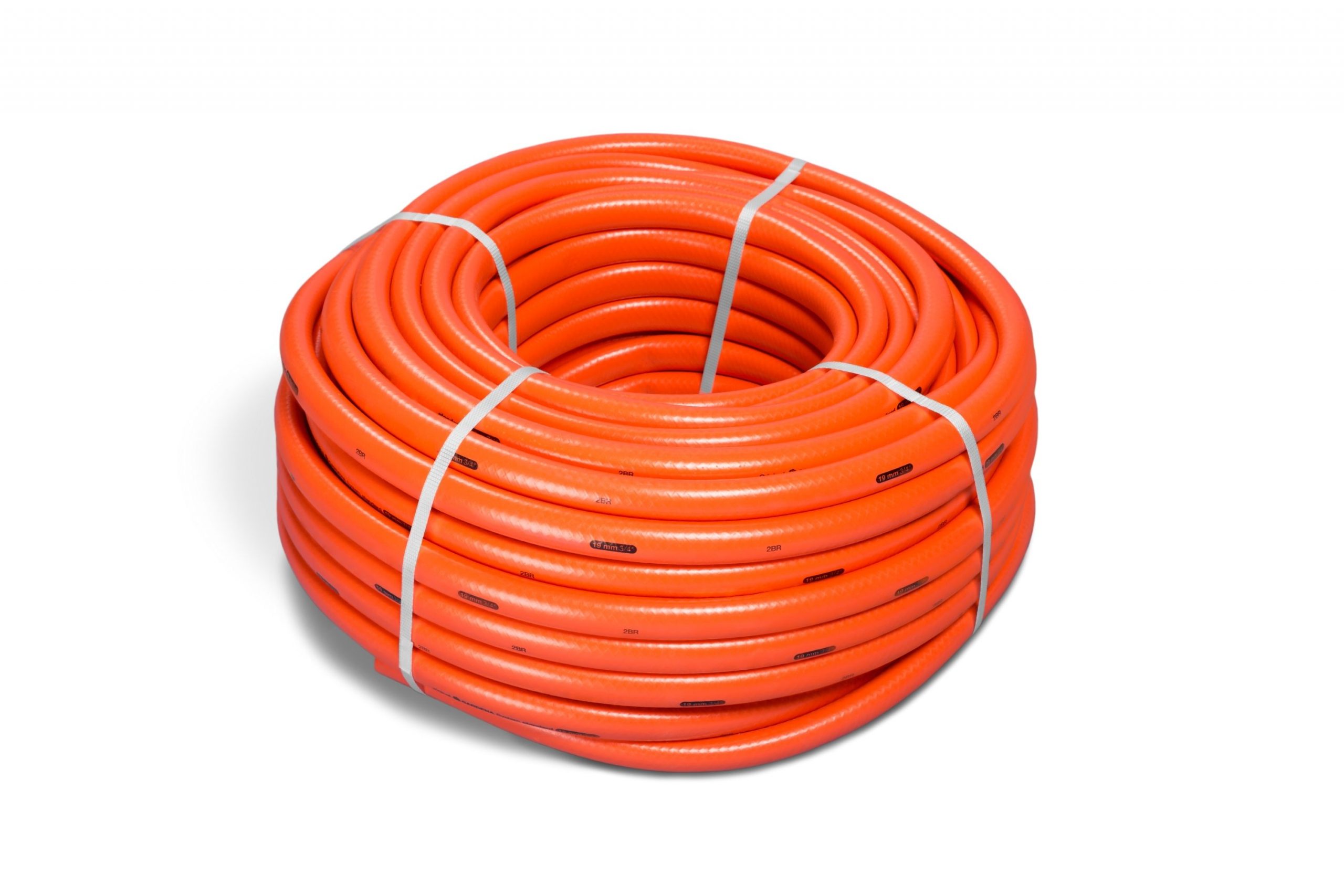
At What Temperature Will My RV Hose Freeze?
This is the question that bothers most of the RV owners who love travelling during the cold season, for instance, in winter or during autumn. Indeed, how cold must it be to make your water hose on the RV freeze?
As we all know from school, water freezes when it reaches the temperature of 32 degrees Fahrenheit. So naturally, when water in your rV water hose and water lines reaches this point, it will start to freeze gradually. And of course, it will lead to the RV water lines and hose freezing as well.
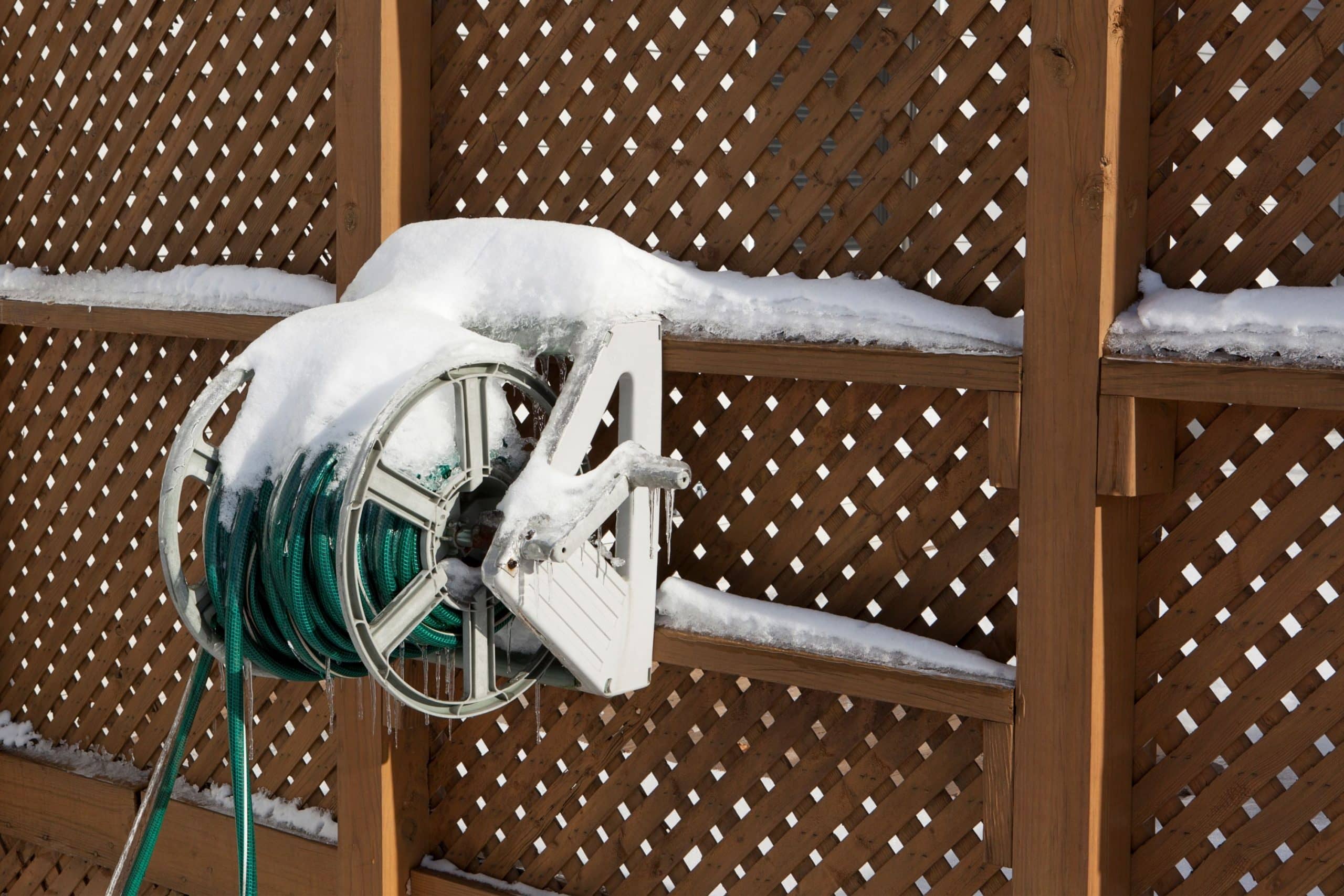
In addition, if your RV water lines and hose are constantly exposed to such low temperatures, it will hasten the freezing process.
However, it may still take quite a while before the whole system gets totally frozen all the way through in case the outdoor temperature fluctuates.
So, as long as you keep your RV water lines moving by using water regularly, and if you have properly insulated your camper for winter use, the risk of your water system freezing is rather low.
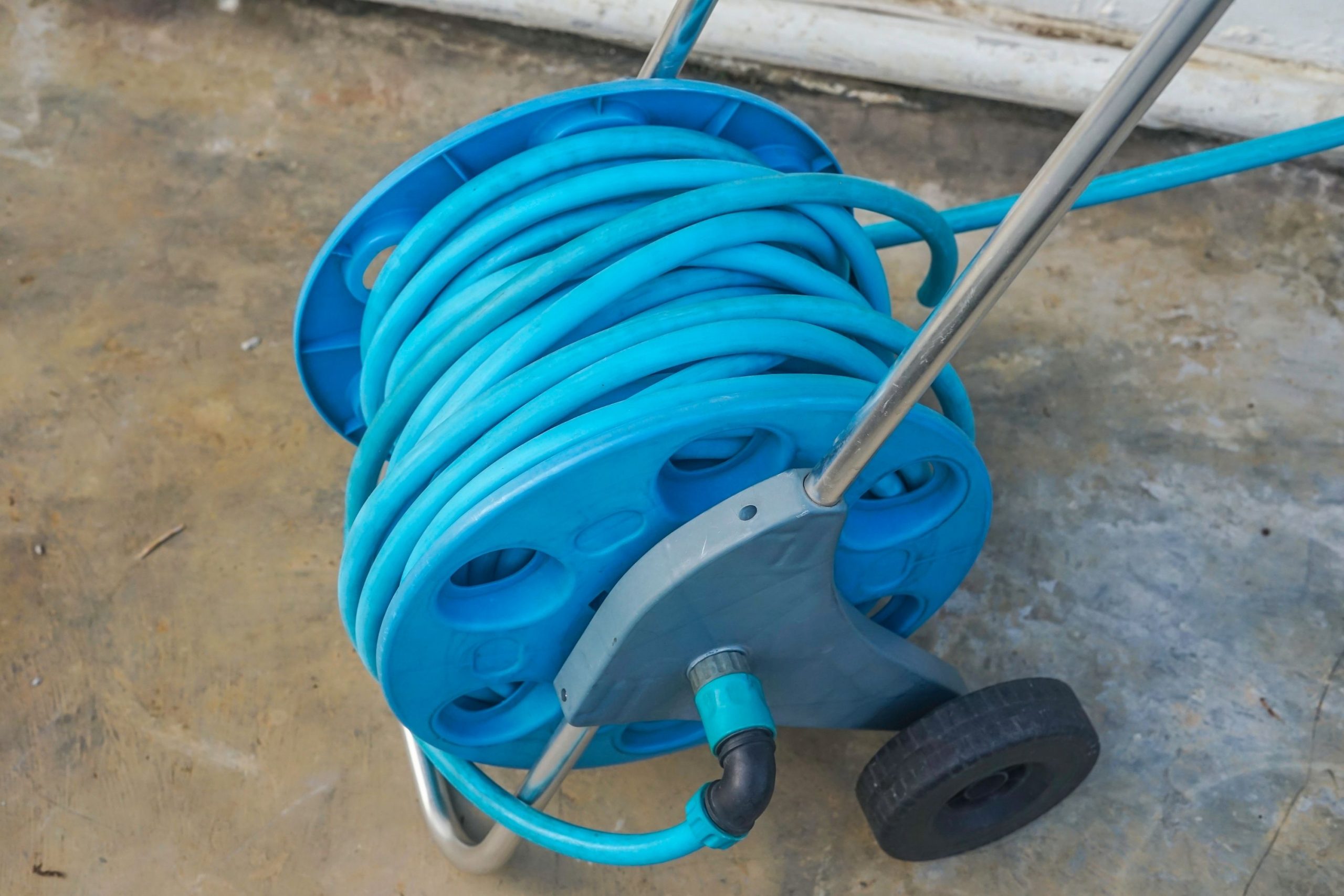
Try to Store Your RV Water Hose When It Is Not In Use
Since now you know the major methods of how to keep your RV water hose from freezing, you can use them all or pick only one of them to protect your RV water lines and water system from winter collapse. However, there is one more alternative option that we think we shall mention just in case.
While the above methods are great and super handy if you leave your RV water hose connected to a water supply all the time, we would like to remind you that you can actually always disconnect it when the hose is not in use! Yes, this simple.
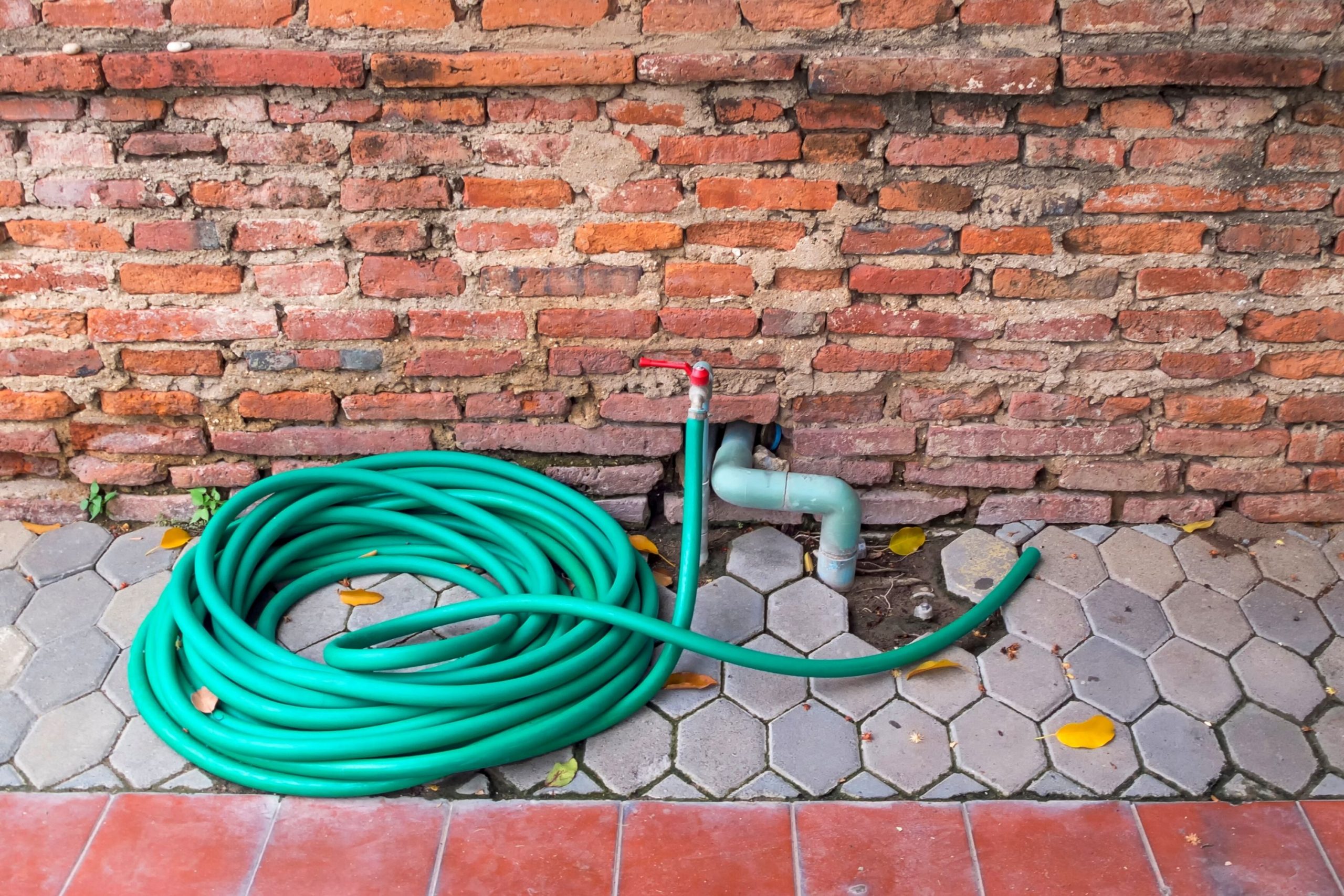
In other words, you can just hook the RV water hose up to the city water supply and fill up your fresh water tank to make it almost full.
Then disconnect the hose and keep it inside of the camper. This way, you will 100% ensure that the hose and other connections never freeze over.
There is only one downside that this method has, but you have to know about it. See, in case you use a lot of water, you will have to continually get the RV water hose out, then hook it up, fill up your tank, then disconnect the hose, and hide it for storage. That is rather bothersome and, well, annoying. But still, it is arguably better than dealing with the frozen water hose!
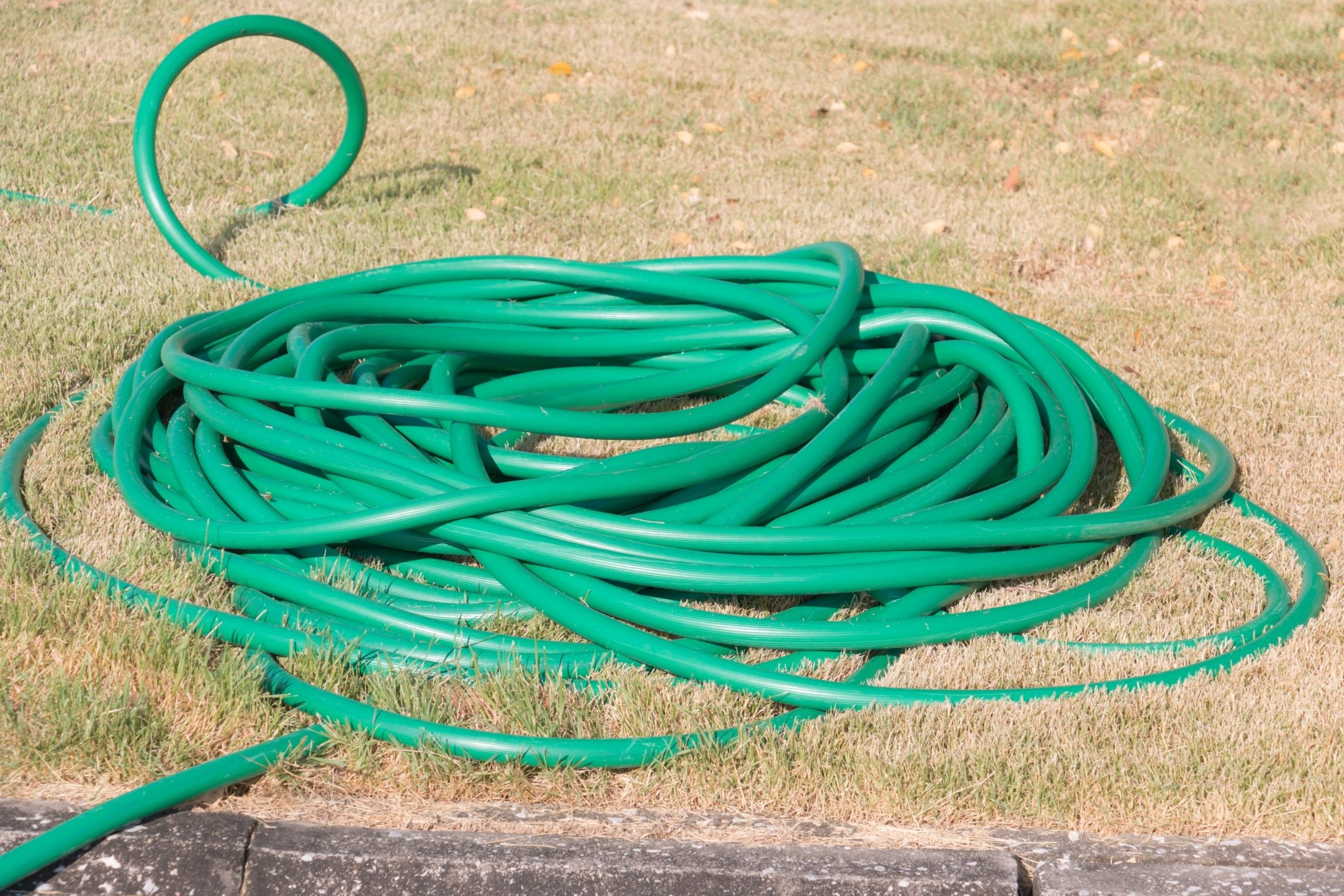
A Few Handy Extra Tips On Protecting Your RV Water Hose From Freezing
Yes, we know that we told you probably everything that one needs to know about keeping an RV water hose safe and sound in winter! However, there are still several tricks and tips that we think you should be aware of when protecting the hose from frost.
- When measuring the water hose for wrapping, measure only the length of the hose that connects to your water supply.
- Use heat cables whenever you stay in an area that is colder than 32 degrees Fahrenheit.
- Avoid coiling the heat cable around the hose since it could make areas excessively hot and cause damage to the hose!
- Some insulating foam tubes are already self-adhesive so you don’t need any tape. Consider this when buying them.
- If you don’t have insulation tape, feel free to make use of aluminum foil around the foam tubes paired with duct tape.
So, now we are sure that you are fully informed about everything that has to do with your RV water hose winter protection!
[wp-faq-schema title=”Frequently Asked Questions”]

